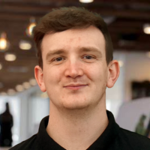
Payroll reports are essential for supporting a wide variety of business processes, such as accounting and employee remuneration. While smaller businesses may find the concept of payroll reporting to be too complex or time consuming, with the right tools and strategies, you can benefit from deeper insights and simpler payroll processes to support long-term growth and success.
What is a payroll report?
A payroll report is a document that contains important data about a company’s payroll processes, such as pay rates, hours worked, annual leave entitlements, employer tax contributions and more. There are different types of payroll reports, relating to the company as a whole or to an individual, as well as mandatory reports to support regulatory compliance.
Types of payroll reports
There are several different types of payroll reports, each of which is used for a specific purpose. Let’s take a look at each payroll report in more detail.
1. Company reports
Company reports cover payroll information for the organisation as a whole and support activities relating to budgeting, forecasting and strategy. They often include comprehensive summaries of total payroll expenses, benefits distribution and workforce costs.
Forecasting
Forecasting reports use historical payroll data to predict future trends in labour costs and workforce requirements. By analysing patterns and projecting future scenarios, these reports help businesses to plan for salary increases and new hires.
Budgeting
Budgeting reports are used to track and manage payroll expenses in line with the company’s financial plans. They’re used to set and monitor payroll budgets, ensuring that spending aligns with organisational goals and financial constraints.
2. Individual reports
Individual reports include information for specific individuals and usually relate to employees. While they are mostly used internally, they may also be requested by a new employer when a person moves to a different company, or could be relevant for financial purposes, such as when applying for a mortgage.
Payslips
Payslips detail an individual employee’s earnings and deductions for a specific pay period. They typically include information such as gross pay, net pay, tax deductions and benefits contributions.
P45s, P60s and P46s
These forms are generated by employers and are critical for employees transitioning between jobs, applying for financial products, or reporting taxes. P45s provide a record of an employee’s pay and tax deductions when they leave a job. P60s summarise an employee’s total earnings and taxes for the entire tax year and are used for annual tax returns and financial applications. P46 forms, which have now largely been replaced by the starter checklist for PAYE, were used to gather tax information for new employees without a P45.
3. Regulatory reports
Regulatory reports cover the areas of payroll relating to legal compliance. These types of payroll reports are important to ensure that your business is operating lawfully, and are required to be submitted to external organisations such as HMRC on a monthly or annual basis.
Tax filings
Tax filings include reports and documents submitted to HMRC to comply with tax regulations. These reports detail payroll-related taxes, such as income tax and National Insurance contributions, and are required to ensure that the correct amounts are paid and reported. Regular tax filings help to maintain compliance with legal obligations and prevent penalties.
The benefits of payroll reports
Payroll reports contain a variety of essential information about your organisation, its employees, and your tax obligations. Let’s take a look at some of the benefits
1. Information is accurate and up to date
Payroll compliance is important for your business, and keeping adequate records helps to support activities relating to compliance and tax auditing. Regular payroll reporting helps you to better identify any errors or inconsistencies, allowing you to remedy them before an issue arises. It also makes the process of submitting essential reports to external organisations much quicker and easier.
2. Easier to make strategic decisions
The various different types of payroll reports offer valuable insights into a wide range of business-critical processes. This allows you to make informed business decisions backed by tangible data, and offers reassurance for key stakeholders.
3. Provides insights into your employees
Payroll reports can also provide information about how your employees use their annual leave entitlements and which benefits and compensation packages they engage with. This helps your organisation to gauge the effectiveness of employee engagement strategies.
The keys to effective payroll reporting
Effective payroll reporting relies on more than just clicking a button to collate data into an easily readable format. When implemented well, it can help you to improve your payroll process, optimise budgets and motivate your workforce.
Here are some best practices for your business to ensure that your payroll process is accurate and efficient.
1. Create frequent payroll reports
Regular payroll reporting is essential to ensure that you stay on top of changing regulations, and that any payroll errors are spotted and corrected in a timely manner. Modern payroll reporting solutions are able to automate analytics and reporting activities.
2. Use your finance team to your advantage
Your finance team can provide valuable insights into budget planning, financial forecasting and cost management by analysing payroll reports and financial data. They can identify trends, detect anomalies and offer strategic recommendations to optimise compensation structures and reduce unnecessary expenses.
3. Make sure reports and performance match up
It’s not enough to simply gauge employee performance or rely on a payroll report to tell you what’s going on in your business; it’s important to combine both to ensure that the results are accurate. Comparing performance metrics with payroll data can reveal discrepancies, such as whether high-performing employees are being rewarded appropriately for their work.
4. Use payroll software
Employees in finance, HR and payroll tend to have a wide variety of knowledge and expertise but often end up getting bogged down in manual tasks such as data entry and payroll processing. Implementing automated payroll software allows for many of these manual tasks to be taken care of, freeing up your payroll team so that they can focus on more strategic initiatives to improve the welfare and efficiency of your workforce.
Compulsory annual payroll reports
While payroll reporting is a useful tool for optimising your businesses practices, certain reports are part of your organisation’s regulatory compliance. The following payroll reports must be generated annually and either kept on record or submitted to HMRC.
P60
A P60 is a document issued by UK employers to employees at the end of each tax year that summarises their total pay and deductions, including income tax and National Insurance contributions. They’re used by employees to prove their income and tax paid, assist in loan applications, claim tax rebates and support means-tested benefits claims. P60s must be issued annually by May 31st, and employees should make sure to keep them for their personal records and tax purposes.
P11D
A P11D is a form used by UK employers to report employee and director benefits and expenses that aren’t included in a salary but may still be taxable. This could be company cars, private medical insurance, accommodation or other work-related expenses. Employers must submit P11Ds to HMRC and provide copies to employees by July 6th following the end of the tax year. They must also submit a P11D(b) form declaring the Class 1A National Insurance contributions due on these benefits.
Easy payroll reports with cloud-based payroll software
If you’re looking for a payroll reporting solution that will help you to streamline processes and ensure compliance with relevant legislation, look no further than PeopleHR.
We’ve created our dedicated payroll software with real businesses in mind, offering functionality and scalability that will support your organisation for years to come. For more information about this, or any of our payroll products, download our brochure or book a free demo.
